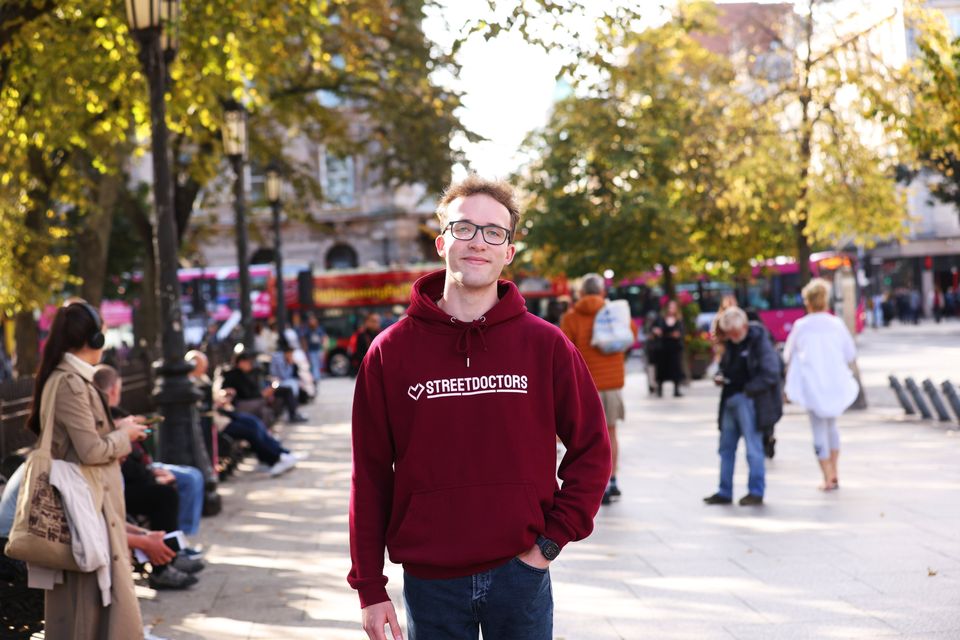A charity is using first aid classes to tackle youth violence in Northern Ireland.
Street Doctors is a movement of young healthcare volunteers who train young people with skills to become lifesavers in their communities.
They aim to empower young people affected by violence to keep themselves and others safe.
Now they are hoping to sign more young people up to the project.
“It’s not just about teaching the young people what could happen in a violent situation, it’s giving them the tools to help people in these situations,” said Alek Pawlewski (22), a Belfast-based Street Doctors volunteer.
Street Doctors was established in Liverpool in 2008 and started working in Northern Ireland in 2021.
Many of those involved in the charity are trainee nurses, paramedics and doctors.
Alek, a final year medical student at Queen’s University, feels they can reach out to young people in a way that others can’t.
“Because a lot of us are younger, the young people feel we are sort of the same level as them and maybe take directions from us a bit easier,” he explained.
“You also act as a bit of a role model to them. It shows them that it is actually possible to break out of this cycle and they can be the person to help in a dangerous situation.”
While knife crime statistics are lower here than the rest of the UK, Street Doctors feel recent rioting proves youth violence is still a huge issue here.
The classes aim to teach those aged 11 to 18 how to help people but also show them how severe injuries associated with street violence can be.
Alek added: “I think if some of the young people involved in rioting and street violence saw the consequences of what could happen because of their actions then they would be a lot less likely to get involved with the violence in the first place.
Read more
Alek Pawlewski who travels round schools in Northern Ireland and teaching children first aid, Monday, September 16, 2024. Picture by Peter Morrison
“Obviously we can’t outright stop them and we don’t necessarily want to scare them but it’s just teaching them the facts.”
He feels the classes give young people a chance to change the narrative surrounding youth violence.
“It gives them that confidence that they know what to do to stand up and take care of their friends or family in a situation where something violent happens and hopefully that confidence means they are less likely to get pulled into getting involved in a violent situation themselves,” he added.
The classes also teach young people how to cope with the mental trauma associated with witnessing a violent attack.
Alek and his fellow volunteers are eager to see Street Doctors expand across Northern Ireland.
“We operate all over Northern Ireland. We have done sessions in Lurgan, we have been out towards Limavady and Newtownards but the hope is we can get more volunteers to cover Northern Ireland and maybe have a team based up in Derry,” he said.
Street Doctors want to see a multi-agency approach to youth violence in Northern Ireland.
“It is a complicated issue and I don’t think any one intervention can solve it. I think it needs lots of different organisations to get involved but what we are trying to do is focus on the educational route,” Alek said.
Martin Tilbury, the chief executive of Street Doctors, said a lack of funding has made it more difficult to grow Street Doctors in Northern Ireland.
“I think funding is a huge issue, it’s an issue for everyone in Northern Ireland particularly with Stormont being shut for so long but because there is so little funding it means that organisations that should be working together to solve issues like youth violence are having to almost fight against each other for funding,” he said.
However, he said the charity has received positive feedback from communities in NI and is hopeful they can continue to grow.
“Communities in Northern Ireland want classes like these and we want to provide them as much as we possibly can.”
